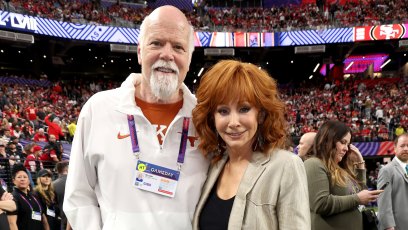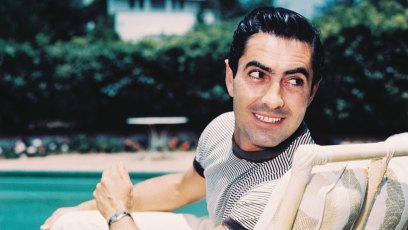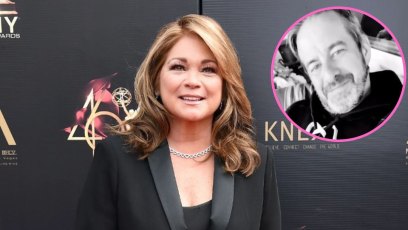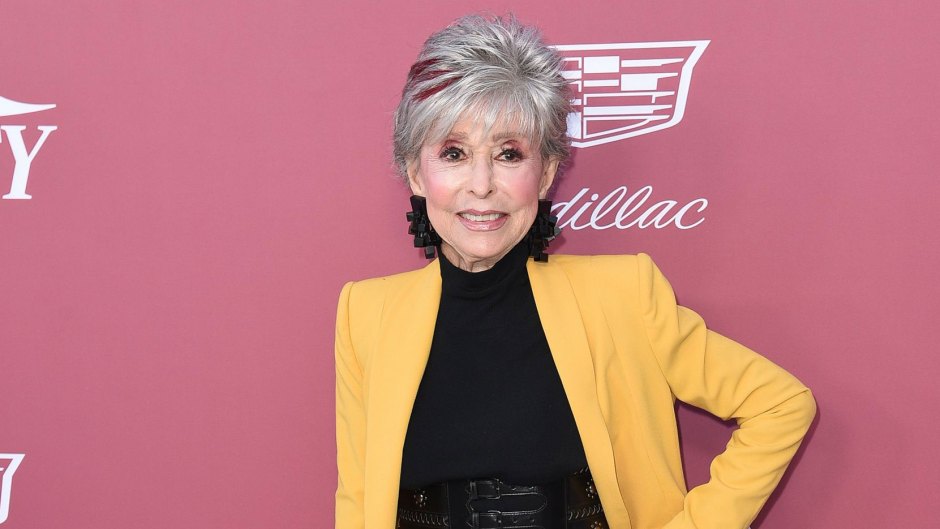
Richard Shotwell/Invision/AP/Shutterstock
Rita Moreno on Getting Recognition in Her Career at Almost 90: ‘The Planets Are Aligned’
Life has come full circle for Rita Moreno. The vivacious actress and dancer co-stars in the new adaptation of West Side Story, which bows on December 10, as Valentina, the widow of the neighborhood candyshop owner. Of course, Rita, 89, won an Academy Award for best supporting actress for the original 1961 movie, in which she played Anita, the fiery girlfriend of Sharks leader Bernardo. “You are in for one of the great experiences of all time,” says Rita exclusively to Closer of the Steven Spielberg directed movie. “This is a great film. It was an inspired story. It was probably one of the most thrilling times of my life.”
It’s no wonder. In addition to West Side Story, a documentary about Rita — who is among the rare EGOT winners, performers who have received an Emmy, Grammy, Oscar and Tony — premieres this month on PBS’ American Masters in celebration of National Hispanic Heritage Month. Rita Moreno: Just a Girl Who Decided to Go For It is also available on the PBS Video App.
Keep scrolling below for Closer‘s exclusive Q&A interview with Rita Moreno.
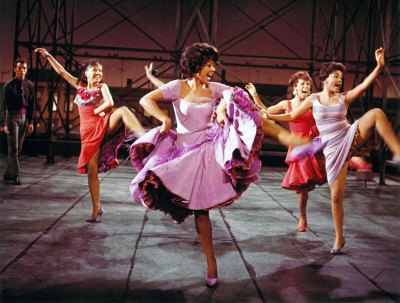
How did your Oscar for West Side Story change your life?
After the Oscars — it wasn’t just the Oscars, I also won a Golden Globe — I couldn’t get a job. The very few that were offered to me were lesser gang movies and some part as a coffee pourer for a Hispanic family. It was one of the most depressing times of my life.
Unfortunately, that seems to happen to a lot of people who win Academy Awards.
I remember going to a very famous agent at my agency, Sue Mengers, who was a tough, tough lady and didn’t pull any punches. I don’t remember the exact words, but she said, “You know, I really can’t help you, honey, because I don’t think you have it.” I had just won the Oscar and the Golden Globe. It was one of the worst experiences of my life.
How did you survive?
I didn’t work for seven years after the Oscar and the Golden Globe. I have to tell you, it broke my heart. I was offered a lot more gang movies, and I said, “Not on your life — I’ve done that!” And I refused to speak with an accent again unless it was a really good part.
You did a lot of ethnic roles earlier in your career.
I was young enough and inexperienced enough to miss the implications of playing roles like that. Initially, I accepted them because I thought that’s how the world was. I just wanted to be a movie star.
One of your earliest roles, in Singin’ in the Rain, wasn’t tied to your heritage.
I thought, Gene Kelly, what an enlightened man. Why else would he have offered me the role of Zelda Zanders, a non-Latina, non-ethnic part? I thought my career was just really starting then, [but] it was not like that at all. I just went right back to playing native girls.
As a young actress, did you have to deal with sexual harassment, too?
The head of the studio at Fox kept calling me. He already had a mistress, but he called me twice a week for months and months. That was a very scary time for me because I thought, he’s not going to leave me alone until something happens one way or the other. So I had my girlfriends who lived with me answer the phone all the time and say I was in the bath or out shopping. He finally got it. In fact, the last time he called, he said, “OK, just tell her I give up.”

You handled that well.
There were lots of experiences like that where I really had to dodge the bullet. I was afraid that I would end up with some fellow because I didn’t know how to say no.
What has been the hardest role you’ve ever played?
I would say playing Anita in West Side Story because I was very aware and sensitive that I was representing in a very, very major way. It’s why I almost didn’t do the film, because there was a lyric at the very beginning of “America” that was so detrimental to Puerto Rico.
Do you remember the lyric?
The lyric was, “Puerto Rico, you ugly island, island of tropic diseases.” I suddenly went into this hideous panic over that lyric…. But later I got the new lyrics and it’s, “Puerto Rico, my heart’s devotion, let it sink back in the ocean.” Oh, you can’t imagine what a relief that was.
And now you’ve returned to West Side Story. How is the new version different?
It’s a marvelous movie. And many of the things that were not exactly right or real about the original have been corrected with a vengeance. That has a great deal to do, not only with Steven, but with Tony Kushner, who also wrote Angels in America. He has clarified a lot of those things in that film that weren’t clear or were fuzzy.
What was it like being followed around by a film crew to create Rita Moreno: Just a Girl Who Decided to Go For It?
There are a number of scenes in the documentary where I look like a very old lady! The camera loves me, and I am really good with makeup, [but] part of my promise to myself was that I would be honest and truthful. If I happened to not have makeup on at the time, that’s the way I would film. They’re not my favorite parts of the documentary!
Was it hard to be that honest?
I knew that was very, very important for me, for my own self-respect [to be real]. I didn’t want it on record that I lied about something deliberately. I think it is probably one of the reasons that this documentary has gotten such praise, because there’s no [BS]. I think it had a marvelous effect. I think people were surprised and delighted.
How does it feel to finally be getting the recognition you deserve?
I am saying, ‘Oh my God,’ every two minutes. I really am. I’m about to be 90. In fact, on December 11, I’ll be 90. And the new West Side Story opens on the 10th. I don’t even know what to say about this except to say that the planets are aligned. I have no idea how this happened, but I have no complaints whatsoever.









